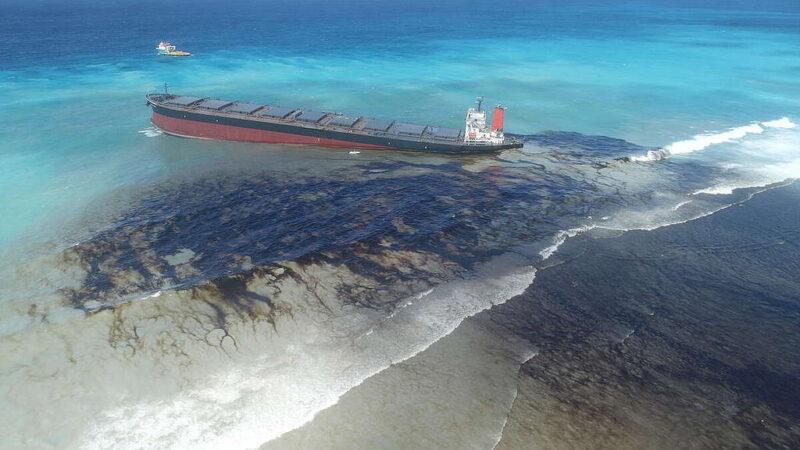In a seismic ruling that echoes through the halls of corporate accountability, a Dutch court has delivered a long-awaited and hard-fought victory to four resilient Nigerians and Milieudefensie/Friends of the Earth Netherlands. This historic verdict comes after a protracted legal battle that spans nearly 13 years, a testament to the unwavering determination of those who sought justice against Shell, one of the world’s largest oil conglomerates, for the devastating oil spills that scarred their Nigerian communities between 2004 and 2007.
The Long Road to Justice
The saga began in 2008 when four Nigerians joined forces with Milieudefensie/Friends of the Earth Netherlands to embark on a legal crusade against Shell. The oil spills, originating from pipelines owned by a Shell subsidiary, wreaked havoc on the fields and fish ponds of three Nigerian villages – Oruma, Goi, and Ikot Ada Udo. Now, after years of perseverance, the Dutch court has ruled overwhelmingly in favor of the plaintiffs, a significant step toward redressing the environmental and social wounds inflicted upon these communities.
Compensation and Hope for the Future
The court’s ruling includes a provision for compensation, offering a glimmer of hope to the Nigerians whose lives were upended by the ecological catastrophe. Eric Dooh, one of the plaintiffs, expressed the bittersweet nature of this victory, acknowledging that two of the original plaintiffs, including his father, did not live to see the culmination of this legal battle. Despite the sorrow, the compensation stands as a beacon for positive change. Dooh envisions utilizing the funds to invest in the restoration of his home village, Goi, with a focus on job creation and community development. Another plaintiff, Fidelis Oguru, sees the compensation as a lifeline for an operation to restore his eyesight, symbolizing the potential for individual healing amidst collective triumph.
Setting a Precedent for Corporate
Accountability Beyond the immediate relief offered to the Nigerian plaintiffs, this landmark ruling reverberates globally by establishing an unprecedented precedent. For the first time, a Dutch company is held accountable for the actions of its subsidiary operating abroad. The court’s decision sends a clear message to other Dutch transnational corporations, signaling that they can no longer act with impunity on foreign soil. The legal victory, which seemed elusive for so long, is now a catalyst for justice, empowering victims of environmental injustice to seek legal recourse.
A Stepping Stone for Global Justice
This ruling has the potential to be a catalyst for justice on an international scale. The hope is that this legal precedent will extend its influence beyond the borders of the Netherlands and Nigeria. As campaigners and environmental activists celebrate this milestone, it serves as a rallying cry for victims worldwide. The courtroom in The Hague becomes a symbolic battleground, inspiring others to take on multinationals in pursuit of justice. The echoes of this victory could very well reverberate through other courts, sparking a new era in the fight against corporate malfeasance.
Addressing Climate Change and Fossil Fuel Accountability
The Dutch court’s decision aligns with the escalating global movement to hold fossil fuel companies accountable for their contribution to climate change. Milieudefensie, the environmental organization involved in this legal battle, has another ongoing case against Shell. This suit demands that Shell drastically reduces its greenhouse gas emissions by 45 percent of 2010 levels by 2030 and reaches net-zero by 2050. The court’s ruling adds urgency to the call for corporations to acknowledge and rectify their environmental impact, making them stewards of a sustainable future.
Improving the Warning System for a Sustainable Niger Delta
The court’s directive for Shell to install a warning system in the Oruma pipeline is a pivotal aspect of the ruling. This specific requirement holds immense significance for the future of the Niger Delta, a region that has borne the brunt of oil pollution for decades. Since the discovery of oil in the region in 1956, the extraction process has led to extensive environmental degradation, affecting wildlife, causing erosion, and contributing to flooding and deforestation. The court’s mandate aims to prevent and detect leaks promptly, fostering a less polluted and more sustainable Niger Delta.
Challenging Shell’s Sabotage Claims
Shell Nigeria has consistently argued that the frequent spills were the result of sabotage, emphasizing its swift response to clean up regardless. However, the court’s scrutiny found insufficient evidence to support these claims for the Oruma and Goi spills. This challenges the narrative presented by Shell, which asserted that the majority of spills were due to theft, sabotage, or illegal refining. The court’s meticulous examination brings to light the need for transparency and accountability in the oil industry, setting a precedent for companies to substantiate their claims.
Future Uncertainties and Ongoing Legal Battles
While the court has delivered a decisive ruling on the spills near Oruma and Goi, the case involving the spill near Ikot Ada Udo remains unresolved. The court is examining evidence related to the cleanup and the extent of oil spread, raising questions about Shell’s continued liability. It remains to be seen whether Shell will appeal parts of the decision to the Supreme Court, adding a layer of uncertainty to the aftermath of this groundbreaking ruling. The ongoing legal battles underscore the complexities and challenges inherent in holding powerful corporations accountable
Conclusion:
In the annals of environmental justice, the Dutch court’s decision against Shell stands as a pivotal moment. It not only signifies a triumph for the Nigerian plaintiffs but also reverberates globally, setting the stage for a new era of corporate accountability. As the world watches, this landmark verdict could inspire similar legal battles against multinational corporations worldwide. For the Niger Delta, it offers more than just compensation; it symbolizes a paradigm shift where corporations must bear the responsibility for their actions, even when operating beyond their home borders. This monumental ruling, born from the determination of a few, has the potential to reshape the landscape of environmental justice for generations to come.

